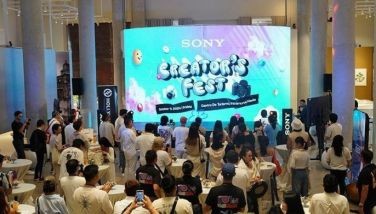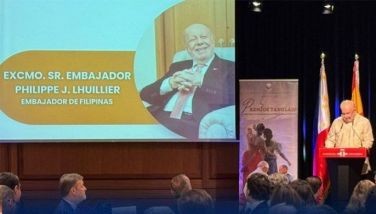Unilever pilot tests sachet recycling technology
MANILA, Philippines - The local unit of global consumer goods giant Unilever plans to invest in a new facility that will introduce an innovative technology for recycling sachets should a pilot test project in Indonesia prove viable.
“It is still in the pilot stage in Indonesia but the intent for us is to check what happens to that pilot and hopefully, if the pilot is okay, then there is a possibility of us putting it up in the Philippines,” Unilever Philippines vice president for sustainable business and communications Ed Sunico told The STAR.
Sunico said a waste recycling technology called CreaSolv Process was developed by Unilever in partnership with the Fraunhofer Institute in Germany.
The new technology is capable of recycling flexible plastic or sachet packaging.
“The intent is for us to have one here,” Sunico said.
“As we all know, solid waste management is an ongoing concern of all local government units. Manufacturers are producing packaging sachets and plastic sachets. The main issue is, plastic is not currently recyclable unlike bottles. If it’s not recyclable, then you need to find technologies to make it more recyclable. And this technology, for the first time, will enable us to recycle that,” he added.
Globally, Unilever has committed to reduce the weight of its product packaging by a third by 2020 and increase the use of recycled plastic content on its packaging at 25 percent by 2025.
The consumer goods giant said billions of disposable sachets packaging are produced every year, especially in developing countries where the purchasing power of the general public has not been able to reach larger packaging products.
“Without recycling solution, sachet packaging ends up in landfills or as waste polluting environment, including the ocean,” the Unilever official said.
In the Philippines, Unilever has been embarking on various undertakings to significantly reduce the volume of sachet waste in Metro Manila and to reuse the waste collected as practical materials for the barangays of the cities that the company operates in.
In Metro Manila alone, the firm said municipal solid waste generated was estimated at more than three million metric tons, 10 percent of which are from plastics.
“We are mindful of the need to be efficient with our packaging and to find solutions in addressing post-consumer waste, especially at a time when resources are becoming scarce and communities are becoming increasingly vulnerable to climate change impacts. We are implementing solutions to prevent our packaging from going to landfills or ending up as litter. We also recognize that the challenge of reducing waste needs the collective effort of various stakeholders, which is why we’re also engaging communities to make it part of their consciousness,” Sunico said.
- Latest
- Trending

























